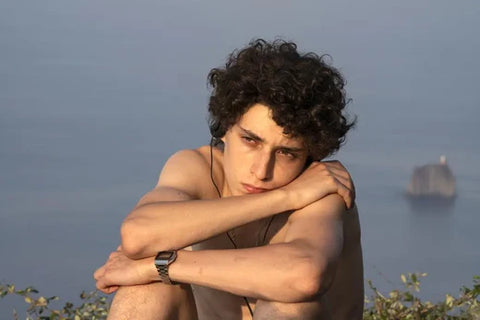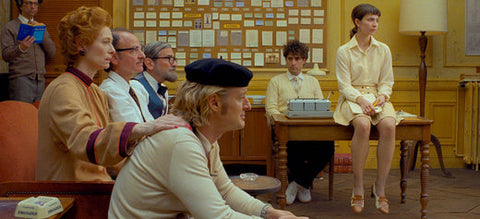
I recently watched a film on Netflix called The Hand of God. When I first read the synopsis, I assumed it was about Maradona’s legendary stint with Napoli, a football-fuelled tale of the city’s obsession with its golden boy. But as the credits rolled, I realised that Maradona’s arrival was just a fleeting chapter in a much larger story—a deeply personal one about growing up, loss, and finding one’s way.
The film opens with a bizarre, almost surreal sequence that quickly shifts into the life of Fabietto, a young man coming of age in 1980s Naples. He’s not your cinematic prodigy or tortured genius. Fabietto is ordinary—almost painfully so. A bit awkward, unsure of himself, and quietly navigating the pitfalls of adolescence. Picture Elio from Call Me by Your Name, but less polished, less charismatic. He hasn’t had his first great love. He doesn’t have many friends. He dreams of romance and sex but doesn’t quite know how to reach for either.
If this is a coming-of-age story, it’s one steeped in the textures of its setting. Naples isn’t just a backdrop; it’s alive. The middle act of the film lingers on the city’s rhythms: the chaotic family gatherings, the absurd yet hilarious drama of relatives, and the ever-present sea. The Mediterranean becomes its own character, changing moods with the light—soft and inviting in the summer, hauntingly deep at night, a canvas of endless possibility.
And then there’s Maradona, whose arrival in Naples felt like divine intervention for the football-mad city. The film hints at this larger-than-life moment, but the narrative soon takes an unexpected, heart-wrenching turn. Even if you sense a plot twist brewing, it hits like a punch to the gut.
“I don’t want to talk about sad stuff,” Fabietto’s friend says at one point.
“Then there is nothing to talk about,” Fabietto replies.
This shift leaves Fabietto stranded in grief and isolation, unsure of how to move forward. But amid the tragedy, a new voice emerges in his heart: he wants to be a filmmaker. It seems absurd—how can a boy who’s only seen a handful of films aspire to direct? Yet the spark is there, undeniable. In the film’s final act, a seasoned director tells him with unflinching passion, “If you want to make films, go and make them. Stay in Naples. Tell its stories.”
It’s a powerful moment of clarity, and as the credits rolled, I couldn’t help but wonder: Did Fabietto follow through? Of course, he did. Because Fabietto is Paolo Sorrentino, the film’s director, looking back on his own life with a mix of raw honesty and poetic reflection.
The title, The Hand of God, feels as enigmatic as fate itself. It’s a concept as capricious as the wheel of fortune—sometimes bringing luck, other times disaster. Like an invisible hand tweaking the strings, it gives sunshine to one and storms to another, for reasons we’ll never understand. Twelve years ago, I lost my father unexpectedly over the New Year holiday, and to this day, I still can’t make sense of it.
But in cinema, as in life, fortune isn’t about being lucky or unlucky. Those touched by hardship often carry richer stories, layered with complexity and meaning. They remind us that life isn’t a given—it’s a chaotic mix of beauty and pain. And that’s what makes The Hand of God so extraordinary: its unapologetic embrace of life in all its messy, bittersweet glory.
If you’re in the UK, The Hand of God is already streaming on Netflix. I’m not sure if it’s available in Hong Kong yet. But if you get the chance, see it on the big screen. Because trust me, the sea in Naples deserves nothing less.


